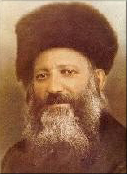 Rav Abraham Isaac Kook was a prominent religious Zionist thinker, whose philosophy continues to serve as the foundation of religious Zionism.
Rav Abraham Isaac Kook was a prominent religious Zionist thinker, whose philosophy continues to serve as the foundation of religious Zionism. Rav Abraham Isaac Kook was a prominent religious Zionist thinker, whose philosophy continues to serve as the foundation of religious Zionism.
Rav Abraham Isaac Kook was a prominent religious Zionist thinker, whose philosophy continues to serve as the foundation of religious Zionism.
Born and educated in Grieva, Latvia, Abraham Isaac Kook had both a traditional Orthodox talmudic background, and a thirst for Biblical and Hebrew language studies, as well as secular philosophy. As a child, he was recognized to be a prodigy and was sent to study at the famous Volozhin Yeshivah. In addition, he studied mysticism, in particular the Radzin school of Hasidic writings. In 1904, imbued with a sense of the importance of the Jewish effort to reclaim Eretz Yisrael, and the redemptive possibilities of a return to the Land, he moved to Jaffa, where he served as a rabbi.
Kook's involvement in Pre-Israel Palestine led back to Europe in 1914, where he became stranded when World War I erupted. From 1916 through 1919, Kook served as a rabbi in London, returning to Eretz Yisrael in 1919. He was appointed chief rabbi of the Ashkenazi community in Jerusalem shortly thereafter, and ascended to the position of Av beit din (head of the rabbinical court) of Palestine, effectively Ashkenazic chief rabbi, a post he filled until 1935. His erudition and piety, in combination with his respect and sensitivity for the socialist and national aspirations of the Chalutzim (pioneers) made his especially suited to such a position, because he was respected by both the Orthodox Jews of Eretz Yisrael and the secular pioneers. Not surprisingly, the more extreme wing of the Orthodox community resented his accommodation of, respect for, and willingness to work with secular Jews. He was, therefore, a controversial figure.
Most Orthodox authorities of the day looked askance at the secular Zionist activities of their day because secularists lacked commitment to the mitzvot. Kook, however, interpreted the age-old messianic vision of Judaism to lend support to the efforts of those working to create a modern Zionist state. A modern, independent Jewish state was not only in consonance with Judaism, but in fact was the finest expression of the Jewish messianic longing and God's promise of redemption. The historical Jewish adjustment to Exile appeared to contradict the efforts of modern Zionists to bring the messianic dream to fruition, but in fact it was the most sincere realization of the dream because the Land of Israel was integral and fundamental to Jewish consciousness and Jewish existence. Jewish life is forever incomplete without a Jewish nation in the Land of Israel.
"A Jew cannot be as devoted and true to his own ideas, sentiments, and imagination in the Diaspora as he can in Eretz Yisrael. Revelations of the Holy, of whatever degree, are relatively pure in Eretz Yisrael; outside it, they are mixed with dross and much impurity," he wrote, giving permission and support to Zionist claims that a Jewish state in the ancestral homeland would make possible not only a safer Jewish existence, but a more genuine one, as well. Diaspora existence has made possible Jewish survival, but only until Jews could once again reside in the Land of Israel and fulfill themselves completely as Jews in their own holy land.
How did Rav Kook bridge the abyss between Orthodox Judaism and secular Zionists? He claimed that although secularists deny that their efforts on behalf of Jewish nationalism had a spiritual component, it was impossible for them to labor on behalf of such an inherently holy goal without affirming the Divine but virtue of their activities. By affirming their connection to the Jewish people and the Holy Land of Israel, secular Zionists were affirming God by doing God's work in rebuilding the Land. It was possible, he admitted, that they were unaware that their efforts were in response to a Divine mission, but more importantly, religious Zionists must understand and appreciate the role secularists played in redeeming the land, and help them to realize that, in truth, their outlook was not devoid of God.
For Rav Kook, redemption is not limited to Jews, and the building up of the Land of Israel was part of a larger, universal process that encompassed all humankind. The redemption of Israel would presage the redemption of all humanity, which would in turn redound to Israel: "All the civilizations of the world will be renewed by the renascence of our spirit. All quarrels will be resolved, and our revival will cause all life to be luminous with the joy of fresh birth... The active power of Abraham's blessing to all the peoples of the world will become manifest and it will serve as the basis of our renewed creativity in Eretz Yisrael."